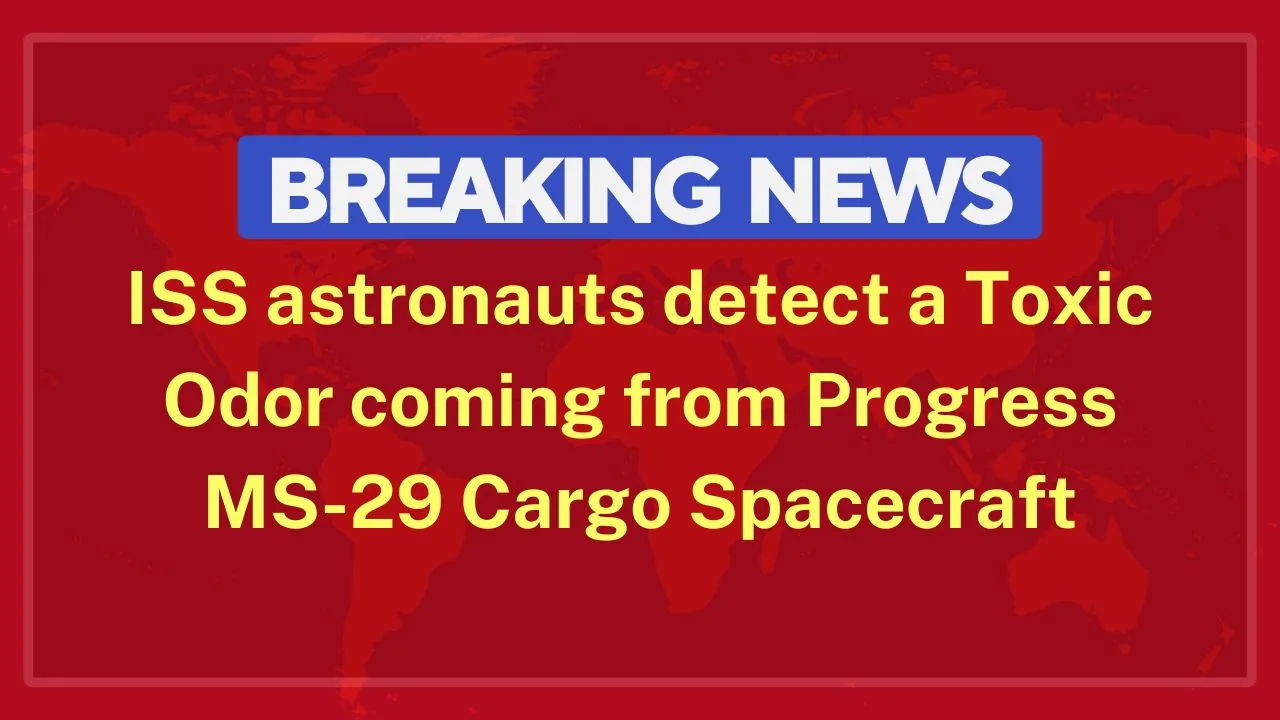Astronauts aboard the International Space Station (ISS) detected a toxic smell shortly after opening the hatch of Russia’s Progress MS-29 cargo spacecraft, which had docked with the station on November 23. The odor, traced to materials inside the newly arrived supply ship, prompted the crew to quickly seal the hatch and activate air filtration systems to ensure their safety.
Progress MS-29 had delivered more than 5,500 pounds of supplies, including food, propellant, and equipment. The spacecraft docked to the Poisk module two days after launch, and the incident occurred when astronauts began unloading its cargo.
Along with the odor, the crew also observed small droplets floating inside the vehicle. The crew reported the issue to mission control several hours later.
Commander Sunita Williams and astronaut Butch Wilmore, who are currently leading the station crew, followed emergency procedures and closed off the Progress spacecraft. Ground controllers then initiated the station’s air-cleaning systems, including the Trace Contaminant Control Subassembly, to remove any lingering toxins. According to NASA, air quality returned to normal by the time the systems were fully engaged.
Williams and Wilmore have been on the ISS since July, after arriving on Boeing’s Starliner spacecraft. Technical problems forced the Starliner to return to Earth without them, leaving the pair to extend their mission for at least six months. NASA has scheduled their return aboard a SpaceX Crew Dragon capsule in February 2025.
The extended stay has brought health challenges, including weight loss for Williams due to prolonged exposure to microgravity. NASA continues to monitor the astronauts closely as they manage the demands of their unplanned longer mission, now marked by the added complication of the Progress cargo issue.

